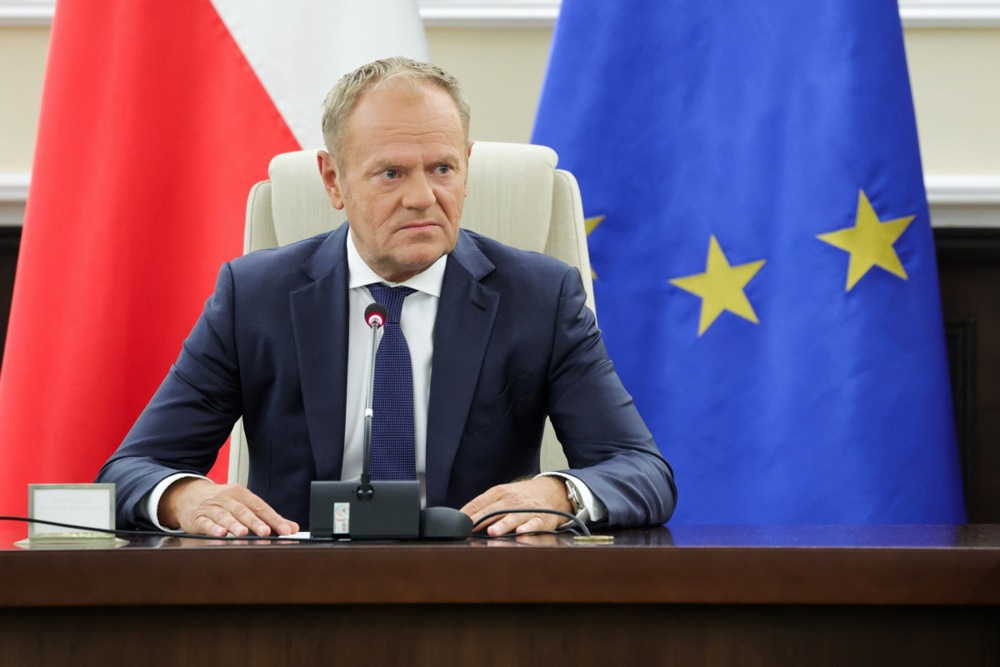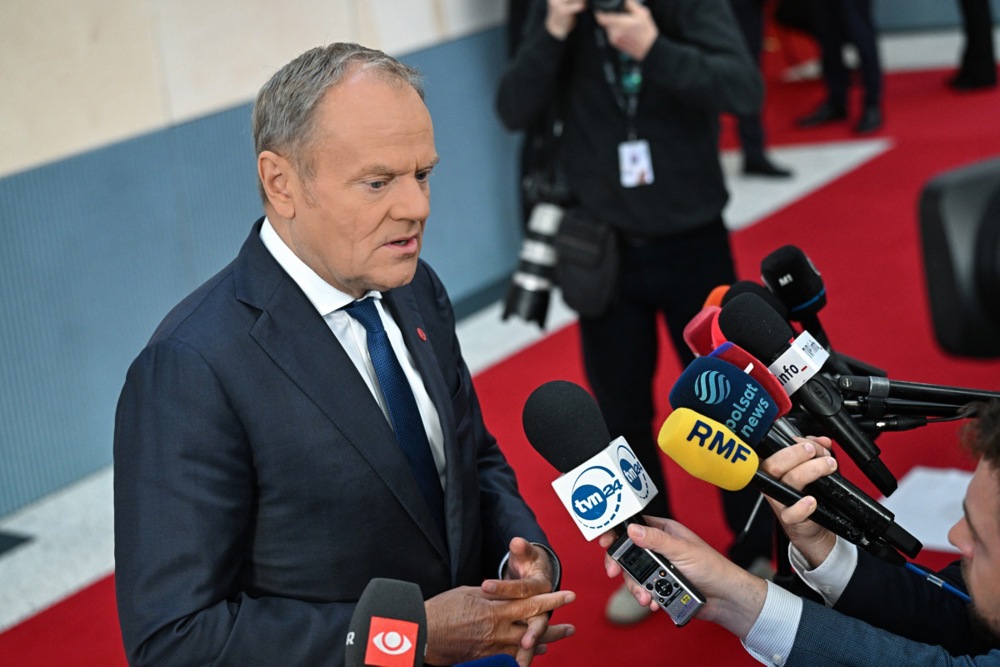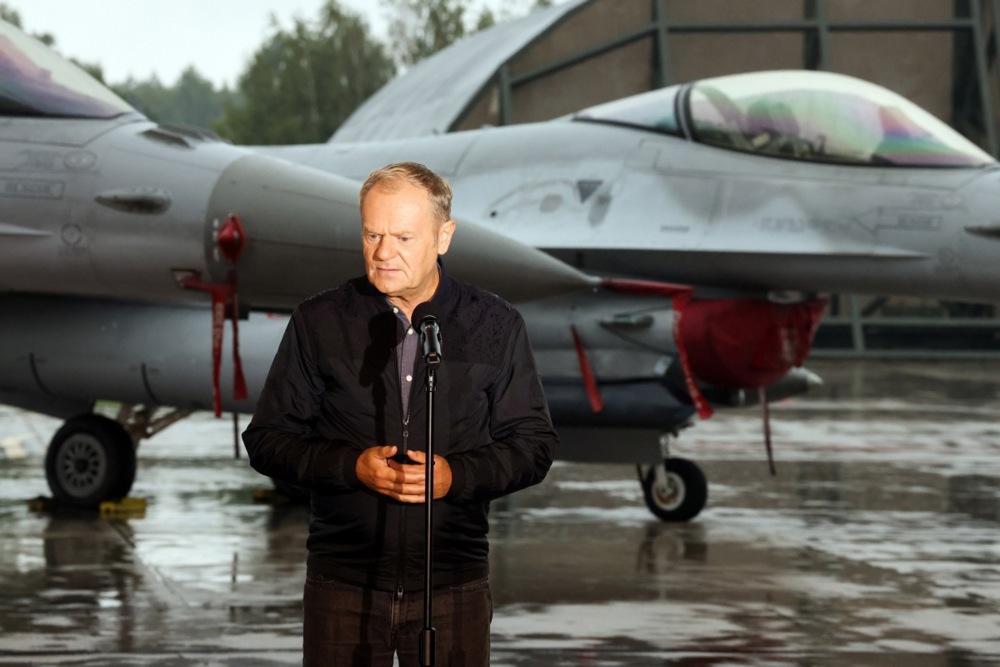Poland’s annual Independence Day march in Warsaw yesterday, focused on defending Polish sovereignty, attracted approximately 160,000, police said.
This was an increase over the approximate 100,000 in the crowd last year.
The event yesterday was attended by the opposition Conservative (PiS)-aligned President Karol Nawrocki. It passed off peacefully as demonstrators backed the main theme of the march: “One nation, strong Poland”.
In past years there have been clashes between the supporters of the nationalist and Conservative groups, such as the right-wing Confederation Party, and left-wing protesters.
The thousands who marched among a sea of white and red Polish flags also featured a number of anti-migration banners carrying slogans such as: “Stop Immigration, Time for Deportation,” and “No to immigration, yes to robotisation”.
Nationalist banners with messages such as “Poland for the Poles, Europe for the Europeans” were present in smaller numbers and there was only one instance of the burning of the European Union flag.
The organiser of the march is the nationalist faction of the Confederation Party and its leader and deputy speaker of the Polish Parliament, Krzysztof Bosak, in a speech at the start said: “We will not allow our lands to be settled by foreign nations without a fight.
“It is Poles who should decide who we accept and who we stop at the borders.
“We will not agree to having foreign civilisational principles and customs imposed on us. It is our duty to defend all dimensions of our independence,” he said.
On social media, Nawrocki shared images of him waving a Polish flag and greeting the participants on the march.
Earlier yesterday, at the official State celebrations of Independence Day, Nawrocki criticised the Tusk government’s performance within the EU.
“Some Polish politicians are ready to give up Polish freedom, independence and sovereignty piece by piece to foreign institutions, tribunals and EU agencies” he said, adding that he would never allow Poland to “passively parrot whatever comes from the West”.
“Poland first and Poles first,” pledged Nawrocki who, during the election campaign, had promised to continue attending the Independence Day March as he had done in years past.
His predecessor Andrzej Duda, also PiS aligned, had only attended the march once during his 10 years in office. That was in 2018 on the centenary of Poland regaining its independence in 1918 after more than a century of partition.
The PiS has only in recent years supported the march after it had become a popular mass event on Independence Day.
Members of the current centre-left ruling coalition led by Prime Minister Donald Tusk, though, continue to distance themselves from the event. They refuse to attend it as they claim it is an example of partisanship on a day that should see national unity on display.
Tusk did not attend the official state event at the Tomb of the Unknown Soldier at which Nawrocki spoke, preferring a separate event in the city of Gdańsk at which he criticised the President.
“In Gdańsk, it was all about unity and joy. But that message didn’t reach everyone,” said Tusk.
“No one has a monopoly on patriotism. Diversity is and can be a source of our strength in the future, but these differences and disputes must not breed hatred, contempt or violence,” added the PM.
Warsaw Mayor Rafał Trzaskowski, who was the Tusk led Civic Coalition’s unsuccessful candidate in the spring’s presidential election, has previously attempted to have the Independence Day march banned. That was, he said, on the grounds that it is a threat to security and a focal point for racists and xenophobes.
During the election campaign, though, attempting to attract Confederation party voters before the decisive second round of the election, Trzaskowski had said he would attend this year’s Independence Day march.
After losing the election, he changed his mind arguing that the event was now not “inclusive” and that, therefore he would not be present.





